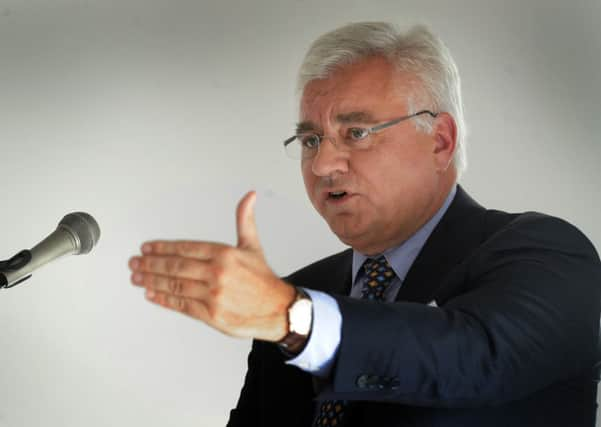Business Diary: October 15


For generations, the child with a conker that was hard as nails enjoyed bragging rights in the playground.
Thanks to technology, children can use a virtual conker to go into battle without leaving their living room.
Advertisement
Hide AdAdvertisement
Hide AdConka, developed by Sheffield-based Think On!, was launched last week. Billed as a “21st century recreation of the beloved British children’s game, Conkers”, the game gives players the chance to “Conka the World” by defeating opponents and exploring different environments including forests, beaches, and snow-covered mountains.
Players can even compete for the coveted title of Conka Games Master.
“Conka is a very personal project for me. You could say that it’s a veiled attempt to bring back a time when a round of conkers defined the day’s winners and losers,” said Sean Maloney, the managing director at Think On!
“Nostalgia aside, Conka is our way of paying homage to a brilliant schoolyard game that, thanks to smartphones, can now be enjoyed by players of all ages, worldwide.”
Not Great, but nice
Advertisement
Hide AdAdvertisement
Hide AdJeremy Paxman, the interviewer, broadcaster and author of a new book on World War One, believes modern Britain is less than great, but that may not be such a bad thing.
The Leeds-born journalist was promoting his new book Great Britain’s Great War to a packed audience at the Ilkley Literature Festival on Saturday night.
He told the Kings Hall: “One of our problems is we have failed to adjust to the fact that we don’t have an empire.
“One’s always hearing about how the Foreign Office punches above its weight and the seat on the Security Council is evidence of continuing great power pretension.
Advertisement
Hide AdAdvertisement
Hide Ad“I don’t think our diplomats are incompetent and the country is malevolent but I do think that by any objective measure – national prosperity, rate of growth, size of military forces, size of overseas territories – Britain is not what it was.
“It actually in many ways is a much nicer place to live. But... I am not sure that we really any longer have a sense of where we are going.”
A little like his speech...
A golden point
JETSETTING lawyer Sir Nigel Knowles does not forget his Yorkshire roots.
The co-chief executive of DLA Piper, the world’s largest commercial law firm, told the Yorkshire Post Business Club: “Having to live in London since 1996, it’s marvellous to be back in Yorkshire.
Advertisement
Hide AdAdvertisement
Hide Ad“You get lots of flak about Yorkshire in the south but I am always proud to make the point, anywhere in the world that I go, that Yorkshire is obviously God’s county and it is the only county, which if it had been a country, would have been in the top 10 in the Olympics medals table.
“I make that point particularly to our Australian partners because we have taken so much flak from people in Australia for such a long time that you have got to get your own back and I do.”
Wednesday wobbles
THERE are plenty of measures that can be taken by employers to ensure employees avoid injury.
But Diary was surprised to learn that the day of the week apparently has a bearing on the likelihood of an office injury occurring.
Advertisement
Hide AdAdvertisement
Hide AdAccording to research by Physio Med, office injuries are almost twice as likely to happen on a Wednesday than on any other day of the week. The research showed that almost a third (29.6 per cent) of accidents resulting in sickness absence happen on a Wednesday, with Friday being the ‘safest’ day of the week.
Physio Med, surveyed 1,000 employees across the UK who had been injured at work in the last 12 months.
Other findings revealed that more than a third (33.9 per cent) of injuries at work are caused by trips or slips, 26.5 per cent by handling, lifting or carrying and a further 21.9 per cent are due to repetitive strain injury.
In addition, the research showed that men are most likely to take time off after an injury or accident, with 86 per cent of men taking two or more days off work after an accident, in comparison to 67 per cent of women.
Advertisement
Hide AdAdvertisement
Hide AdAlmost half (49.9 per cent) of those who had been injured in the last year said they received no first aid or help with access to rehabilitation from their employer at the time of the accident and a further 20 per cent claimed they had never received training or advice from their employer on health and safety, ergonomics or stress management.